Maamoul is not only a delicious treat but also holds cultural and religious significance for Muslims.
Oftentimes people associate a scent, a song, the weather, or even an outfit with a time or a place. Only one of those elements can serve as a ticket to travel across the world or between different times.
Here in the Middle East, a single taste of Maamoul is enough to resuscitate past generations and invite them back into every Arab household during the festivities of Eid, triggering nostalgia while bringing about a sense of cultural unity.
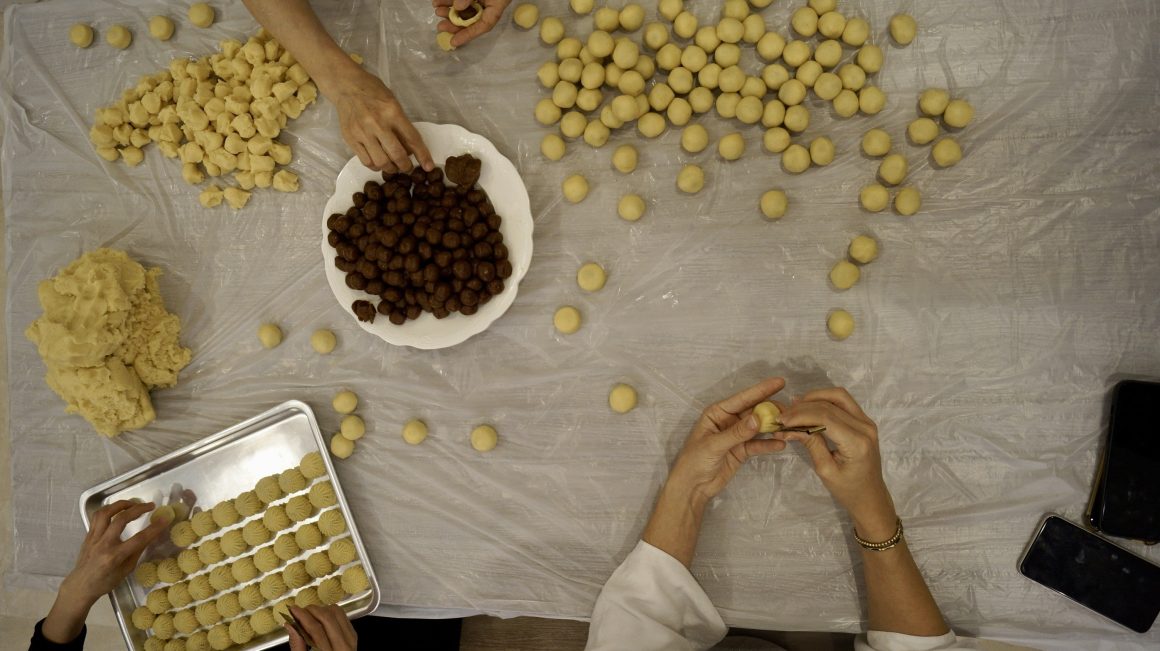
The Maamoul, a delicate cookie made of buttery dough stuffed with dates, nuts or figs, and then shaped into intricate patterns using special moulds, has transcended generations and lifestyle changes.
The traditional Middle Eastern dessert remains the welcomed guest of every Arab household during both Eid al-Fitr and Eid al-Adha.
Just days ahead of Eid al-Fitr, Rana Al-Khatib, a 32-year-old Palestinian mother of two, along with her own mother, Samia, can hardly be seen from behind the many trays of Mammoul occupying in their living room.
As Rana and Samia knead a bowl of dough together, they narrate the story of different generations and one of a warm upbringing.

“Mama always has Maamoul at home […]mama is amazing in the kitchen and now I started appreciating this and notice how much time and effort it takes to make it,” Rana, who is also founder of Sit Beit Kitchen, tells Doha News.
As the mother and daughter roll the dough, they both recount memories from when Rana’s brother got married in the United States during the past summer.
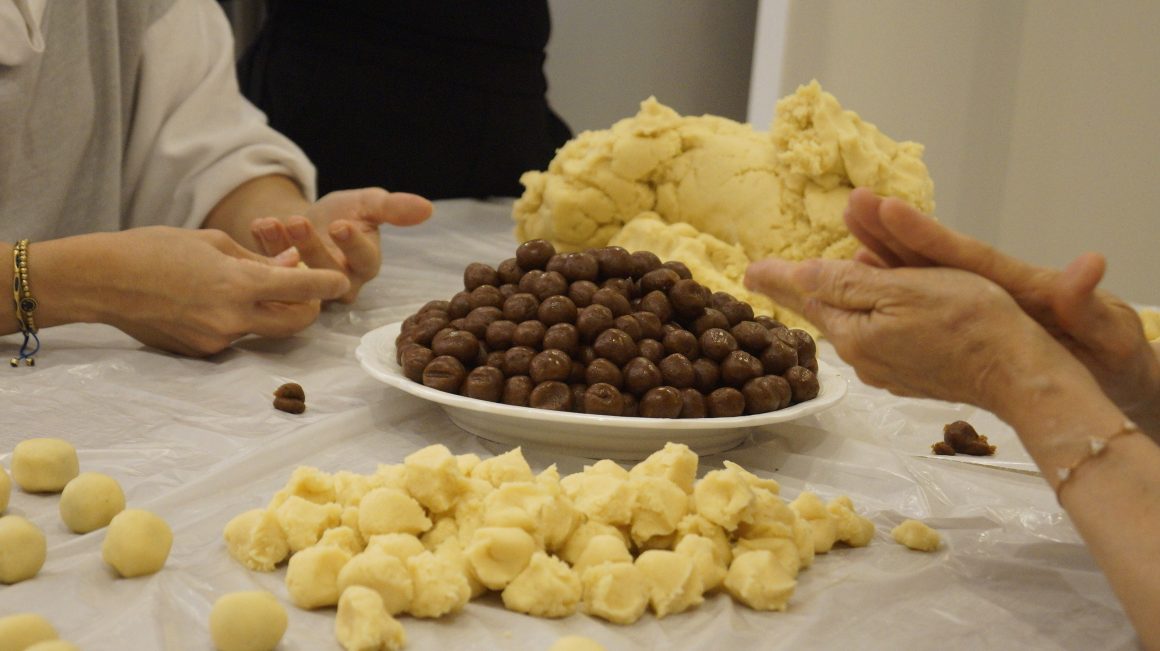
The passionate baker had carried a whole batch of Maamoul all the way from Qatar to serve to the wedding guests, and even handed her son a box filled with the baked cookies when he headed to Bali for his honeymoon.
The Maamoul’s association with joyful events, such as Eid and weddings, for the Al-Khatib family is only an example of the positive feeling it carries across the region.
Although it is believed to date back to the Pharaonic era of ancient Egypt due to the carvings it has, the traditional Middle Eastern dessert has spread across the region and became the icon of Eid.
While each Arab country makes its own Maamoul, the common ingredients include semolina, ghee and Arabic gum, widely known as “mastic”.
A generational wealth
As Samia mixed the ingredients, she speaks of her earliest memories of Maamoul, from when her own mother in Lebanon used to bake batches for Eid. Samia then instilled the tradition in her household when she became a mother of four.
When a young Rana and her siblings went to sleep, the kitchen became Samia’s stage and the light inside the oven into her own spotlight.
For her children, the smell would always mark their mother’s presence and her love for her family.
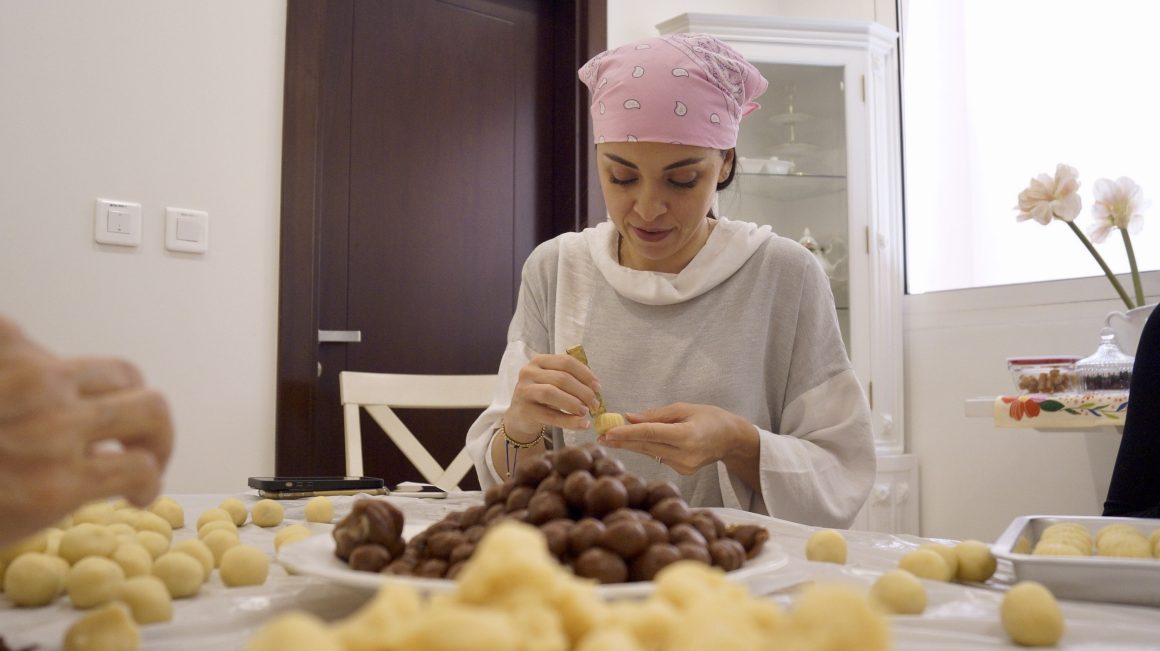
“I once read an article on the soul one puts in their cooking[…]and mama actually puts her soul into cooking,” Rana said as she helped her mother lay out the dough on trays before carving them.
After being blessed with grandchildren, Samia ensured to pass on the flavourful tradition to her grandchildren, who Rana described as “Maamoul monsters”.
“The goal [of making Maamoul] has changed, I now bake it to make them [grandchildren] happy,” said Samia, who had also been selling Maamoul for charity for the past 13 years in Qatar.
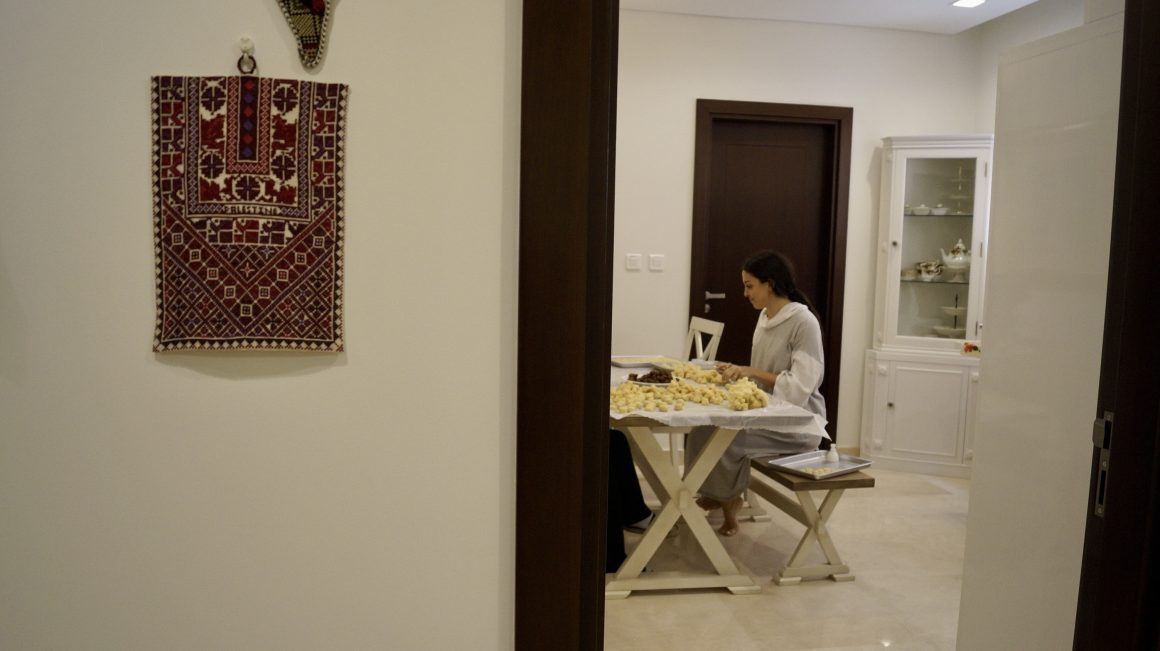
Motherhood is what made Rana get into her mother’s apron to understand the actual process of cooking in general as well as the baking of Maamoul.
She had started her own business in 2018, called “Sit Beit Kitchen”, which sells packages of traditional Middle Easter recipes, such as Mloukhiyeh and Mujaddara.
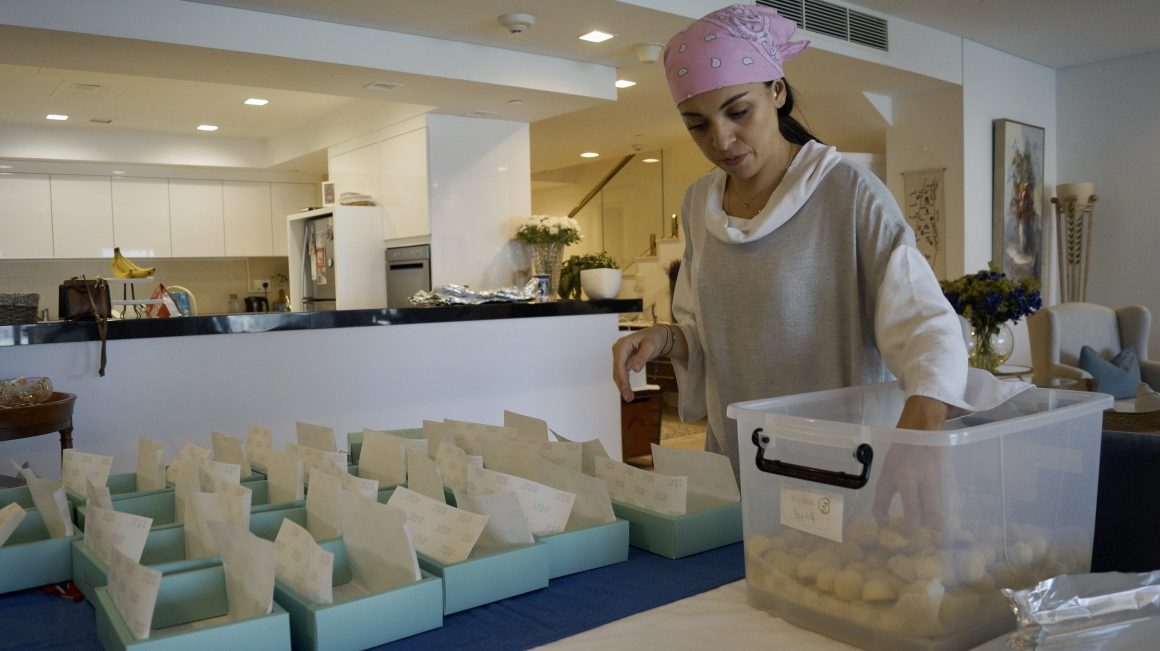
“I love finding solutions to problems and when I got married I had a problem – I didn’t know how to cook. So I thought why don’t I create something that helps me make cooking easier for everyone? So I thought ‘Why can’t we have Betty Crocker for traditional food?'”, Rana said.
The business has carried her passion for preserving her culture through food, something that she also started doing by selling Maamoul for the first time in March this year.
“I’ve been very much into traditional cooking and preserving our culture and that’s the mission behind Sit Beit brand. I just want to make it as easy and as accessible to everyone so I am able to preserve our culture,” the young entrepreneur said.
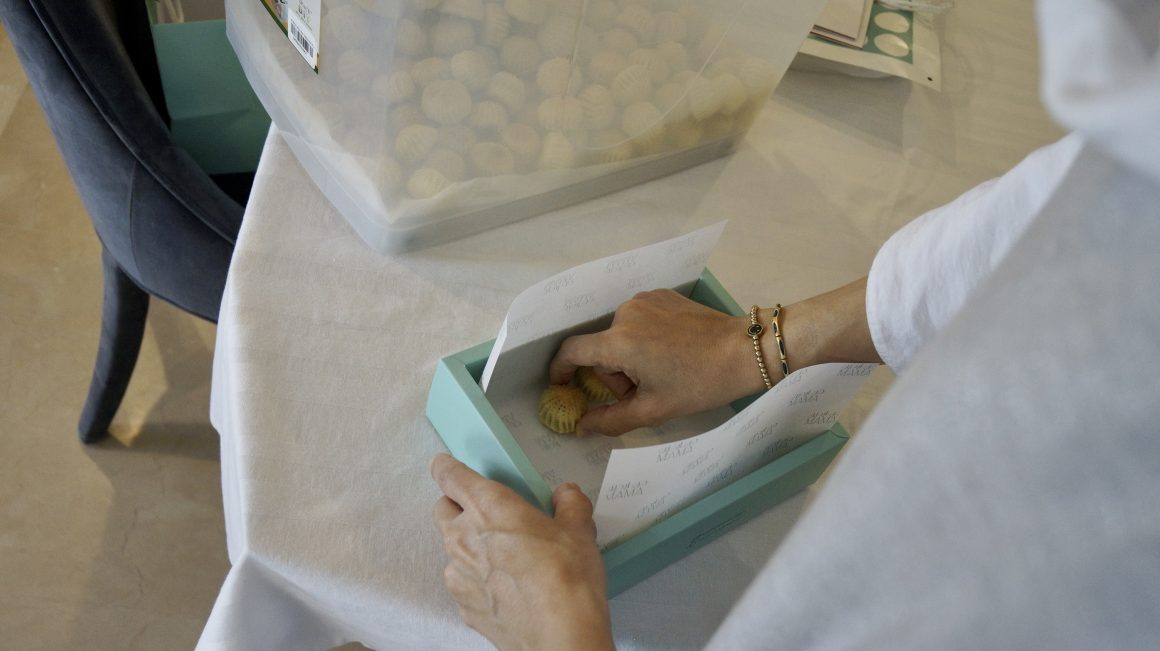
Rana named the Maamoul business “Min Edeen Mama”, which translates to “from mama’s hands”, to add to the warm, homely identity of the baked delicacy. A total of 25% of the baked goods also get donated to charities in Qatar and beyond.
Four years back, Rana shared her mother’s Maamoul recipe with her followers, which many have continued to follow until today.
“Some even made Maamoul using mama’s recipe for the first time […] knowing that someone from my generation who is so busy still wants to keep this tradition going brings me joy,” she said.
Reflecting back on the significance of Maamoul in her life, Samia stared at the baked delicacy through the oven’s window, inhaling its aroma and smiled.
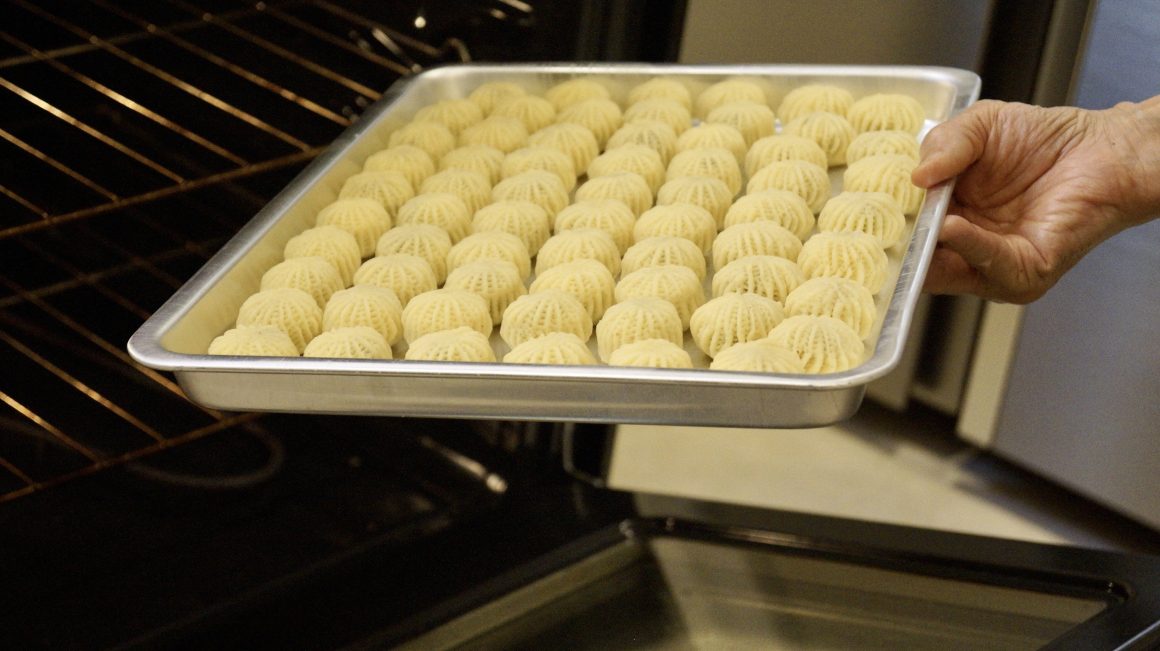
“When you make Maamoul, you have to smell it. I mostly associate Eid with it […] if I don’t bake any, it wouldn’t feel like it’s Eid,” Samia said.
And with every bite, every household gets a sweet taste of Eid.


